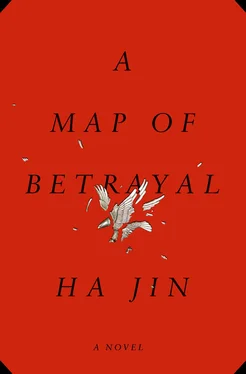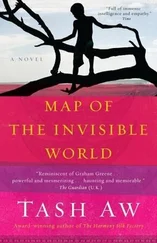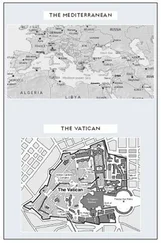The information Gary had seen suggested a dire prospect. If war broke out, there’d be little hope that China could win. Perhaps there had been some domestic troubles that compelled Mao to externalize the tension by provoking the border clashes. Still, this could get out of hand. If only Gary had a way to make his Chinese superiors see the danger lying ahead and avoid acting rashly. If only he could meet Bingwen again. Gary talked to Suzie about the possibility of war between China and the Soviet Union. “Mao is a crazy warmonger,” she said. She now hated the chairman, though she used to have mixed feelings about him and had even regarded him as the founder of the new China. To her mind, Mao was addlepated and should have retired long ago. The longer he stayed in power, the more harm would befall the country.
Gary just echoed Suzie’s sentiments, unable to confide his true worries to her — that he’d lost contact with China and all the valuable intelligence he’d accumulated was becoming useless. On the other hand, he was by now accustomed to his isolation, which gave him an ease of mind that he had never experienced before. His life was growing more peaceful, and most of his old anxiety and fear were gone. He slept better and no longer felt like he was being shadowed when he walked alone. What’s more, he’d begun to be fond of this place, where he had a secure, decent job and a comfortable home with a little flower garden. If he were a regular immigrant, he’d have felt like a success, like those who would brag to the people back in their native lands that they had made it in America.
In late July 1969 came the Apollo moon landing, a feat that astounded the world. Gary was riveted to the TV watching the astronauts, each carrying a bulky backpack and bounding in their white suits on the face of the moon. They also gathered around their vehicle and equipment as if working underwater. Gary took pride in this country (he wrote in his diary on July 20, 1969: “Truly a great feat!”) and was happy to see the U.S. flag planted up there. Now this historic event was unfolding before the eyes of the world to demonstrate the U.S. supremacy in space technology. In the back of Gary’s mind lurked the hope that the moon landing might shake the Chinese leaders back to their senses and make them see how far behind their country had fallen.

On an early August afternoon, the postman delivered a bulky box to the super’s office of our building. Henry had gone swimming at a fitness center, so I scrawled my signature on the scanner. Evidently it was something Henry had purchased from New Jersey, but usually he’d tell me before he placed an order.
That evening I asked him about the package, and he said, “Oh, that’s something I bought for Ben.”
“What is it?”
“We’ll see.” His eyes twinkled with a smile. He slit the sealing tape with a brass key and opened the flaps. Inside were foam peanuts, and he stirred them with his hand and fished out five blue boxes, each the size of half a brick.
“What are these?” I asked.
“Microchips.”
I opened a box and took out a square chip, about two inches across and topped with a miniature cooling fan. My heart began to sink, and I asked Henry, “Are they expensive?”
“You bet. More than five hundred bucks apiece.”
“Why did Ben want you to buy them?”
“He said because he had a Chinese last name, some salespeople often screwed up his orders and once in a while his purchases never arrived. If I could buy stuff for him, he’d pay me double price for everything I bought. So I thought it was a good opportunity to make some money. See these five little rascals? I paid twenty-seven hundred bucks for them and can get a one hundred percent profit.”
“This doesn’t sit well with me.”
“C’mon, Lilian dear, don’t be such a party pooper. Anybody can buy microchips. In actuality I think Ben’s doing me a favor, letting me pull in a couple of bucks.”
That night I surfed the Internet to find out what these chips were for. I spent about three hours online but couldn’t figure it out exactly. Yet I came across several articles about Chinese nationals living in the States charged for shipping banned microchips to China. Some of the chips belonged to the category of embargoed technology because they could be used on aircraft and missiles. I was alarmed, though uncertain if Ben had been acquiring them for the Chinese military. I figured there was a fifty-fifty chance that this was illegal.
I talked to Henry about it again the following day and mentioned that some Chinese nationals had recently pleaded guilty to shipping banned microchips to China — two men had been sentenced to seven and five years in prison. “Please, Lilian,” Henry said. “You’re paranoid, still under the shadow of your father’s case. First, if the chips I bought are banned technology, how can someone like me purchase them without any restriction? Second, it’s not like I got hundreds of them. I ordered only five. There’s nothing illegal in this.”
I didn’t know how to counter him. His reasoning sounded cogent, yet I couldn’t feel at ease about this. I called Ben the next evening, and Sonya picked up. She sounded cheerful, her voice giggly. She had just moved in with Ben, and their relationship seemed to be going strong.
“Ben, Aunt Lilian’s on the line,” she trilled.
After a few words with him, I asked point-blank about Henry’s purchase. “Please level with me, Ben,” I said. “Is it illegal to do that?”
“No, anyone can buy Intel chips like those. For that matter, they’re already obsolete. The manufacturer doesn’t produce them anymore.”
“Then why did you get Henry involved?”
“It’s just easier for him to buy them directly. Besides, I want Uncle Henry to make some money. It’s easy cash for him, don’t you think?”
“So you can make a lot of profit acquiring microchips?”
“Yes, usually about three hundred percent. I give Uncle Henry a third of what I get.”
“Thank you. But who are the ultimate buyers of the chips?”
“Some Chinese companies.”
“Why do they pay three times more than the listing price?”
“Because they cannot acquire them by themselves.”
“Does this mean the chips are embargoed?”
“In principle, yes.”
“What do you mean by ‘in principle’?”
“It’s a long story. Ever since the Tiananmen Square incident in 1989, the U.S. has banned lots of technology from export to China. Some microchips are on the embargo list. But the problem is that many Chinese companies and labs have been using equipment made by American manufacturers, so some new chips are needed to replace the broken ones. This has nothing to do with cutting-edge technology. It is a matter of maintaining what the United States has already sold to China. The users of the machines can’t buy any of the banned chips directly, so our company’s service fills the need.”
“I hope you’re telling me the truth, Ben.”
“Why should I lie to you? You’re the only family I have on this side of the planet. You’re my aunt by blood.”
“Aren’t some of the chips used on missiles and jet fighters?”
“Yes, they are.”
“Clearly it’s illegal to ship those to China. If the FBI finds this out, you might do jail time.”
“Look, how many rich people are making money legally in this country, or in any country? It’s not like I’m sending the chips back in large quantities. I sell only two or three at a time. The truth is, the chips are available elsewhere if not from the States.”
Still unconvinced, I said, “Ben, you must stop doing anything illegal. In this country you have to keep your nose clean if you want to live a good, peaceful life.”
Читать дальше












